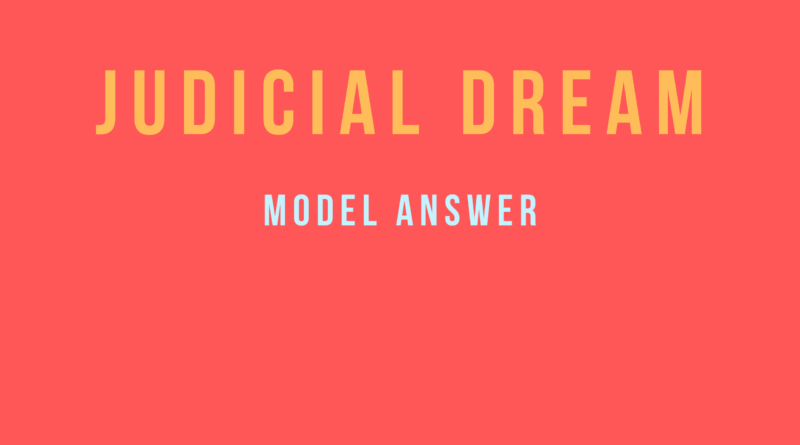MANDATORY INJUNCTION
Discuss the principles of Mandatory Injunction.
Section 39 of the Specific Relief Act, 1963, deals with the provisions of Mandatory Injunction. According to this section, if any obligation exists in favour of a person and another person tries to breach that obligation, then just to prevent the breach of obligation, a court can grant mandatory injunction.
By granting mandatory injunction the court compels the wrongdoer to perform certain acts. This type of injunction is different from perpetual injunction because in perpetual injunction one person is restrained from doing an act or thing but in case of mandatory injunction, a person is compelled to do some positive act.
Basically, it is a command to undo that act which has been done or to do a particular act to restore things to their former condition. For example: – A is an owner of a house and enjoying the easmentary right of air upon land adjacent to his house. The owner of said land sold that land to another person after informing about that easmentary right.
But the new owner started constructing building on that land. In this case, A can file a suit and claim mandatory injunction and if the court allows the claim, then the court can restrain wrongdoer to construct that building and also order him to demolish the part of building which has already been constructed.
In the leading case of Bhagwan Kaur vs. Chetan Singh, the Hon’ble court held that when mandatory injunction is granted under section 39 of the Specific Relief Act, 1963, two elements have to be taken into consideration. Firstly, the court has to determine what acts are necessary in order to prevent the breach of obligation; secondly, the requisite act must be such as the court is capable of enforcing.
The relief of mandatory injunction is equitable in nature and it is not mandatory for the court to grant it in every case. It is a discretion of court whether to grant mandatory injunction or not. But it is requisite for the court to exercise this discretion judiciously. If in any case, the court thinks that it would cause injustice to defendant if it will grant mandatory injunction, then in such a case, the court can refuse to allow it.



